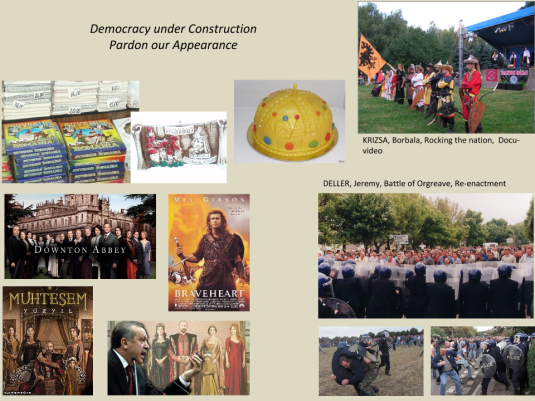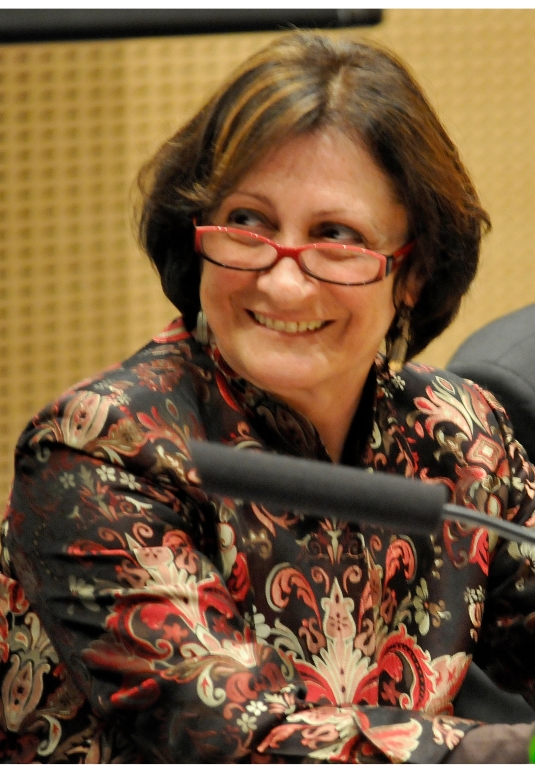31.03.15 – Edit Andras: ‘Art and nationalism in the Post-Socialist countries’
31.03.2015 – 19:00
DEMOCRACY UNDER CONSTRUCTION. PARDON OUR APPEARANCES.
Art and nationalism in the Post-Socialist countries
Lecture by Edit András (Hungary)
The lecture focuses on the rise of neo-nationalism in the post-socialist countries through various artworks that address the issue making us aware of the foundations, institutions and operation of nationalism. Art plays crucial role in rendering the abstract concept of nation palpable and accessible that holds true both for official art aiming to put art and visual representation into service of its propaganda machinery and for critical, subversive contemporary art that sheds light
on the blind spots or naturalized process of nation building. The points of departure are contemporary practices through which the lecture aims to explore different attitudes and artistic positions, whereas the nature and mechanism of nationalism will be also unfolded.
Account on historic nationhood puts an emphasis on the role of history, myth-making, traditions and those legitimizing institutions and sites, like museums, monuments and memorials that are central to the construction of shared national ideologies and identities. How history is used and abused and new forms of selling and consuming history, personal engagement are also to be illustrated. Artworks touching the issue of heroes, the triumphant embodiments of collective identity will be scrutinized along with anti-heroes excluded from the national pantheon.
Gendered nature of nationalism is also to be uncovered. Reincarnation of the cult of the leader and its subversion is the topic of lot of different works, videos and painting alike. Forging, reproducing and symbolically enacting the nation, that is the national rituals, symbolic signs, requisites will be also discussed. Personal engagement, the bottom up construction of nation utilizes the current approach to the phenomenon, the micro-perspective. Works will be shown that address the obsession with borders or confront us with the limit of solidarity as well as docu-fictions revealing the imaginary nature of community building. There are artworks that expose the process of constructing the enemy outside and inside, a concept that is inevitable for nationalism, however, other works offer new path to re-imagine of communities in a more inclusive manner. The selection of artworks made by Albanian, Hungarian, Slovakian, Romanian and Russian artists will be shown.


